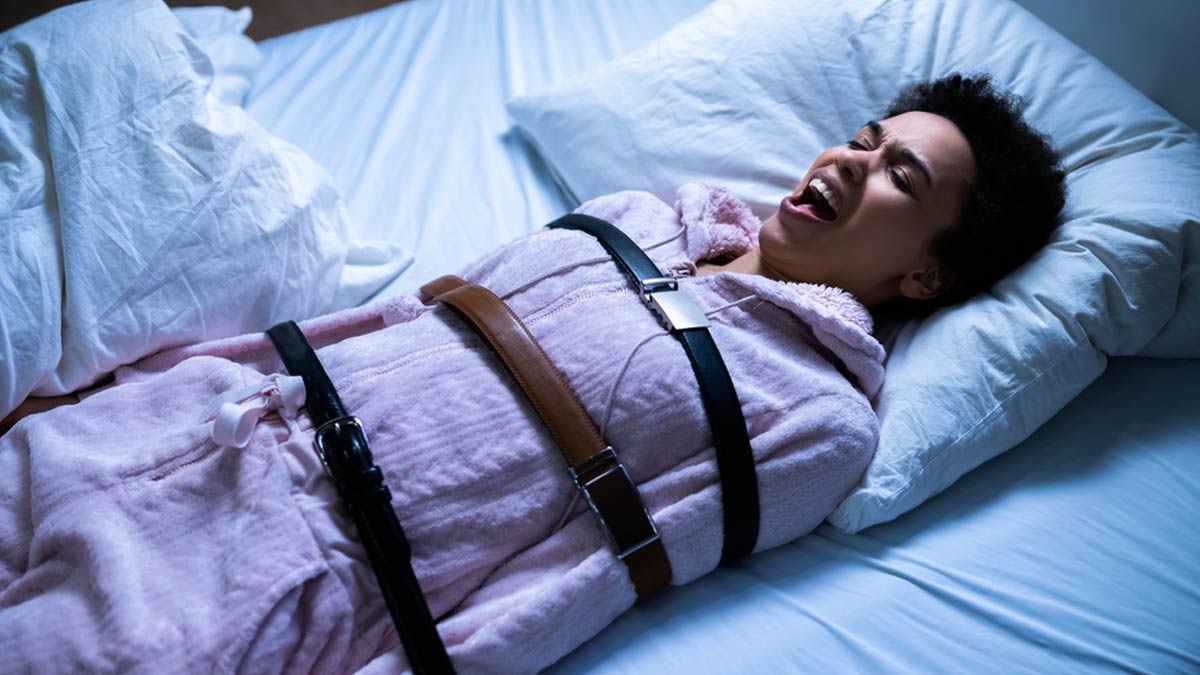
Sleep paralysis refers to the feeling of being conscious but not being able to move.
In an interaction with the OnlyMyHealth team, Dr Salil S Bendre, Director - Pulmonology, Nanavati Max Super Speciality Hospital, Mumbai, describes sleep paralysis as a condition characterised by a temporary inability to move or speak while falling asleep or upon waking.
Table of Content:-
He says that it typically lasts for a few seconds to a couple of minutes and can be accompanied by hallucinations and a sense of pressure or choking. In fact, an estimated 75% of sleep paralysis episodes involve hallucinations, according to the Sleep Foundation.
Let’s try to understand what causes sleep paralysis in the first place and how it can be prevented.
Also Read: Insomnia: Know About Different Types Of Insomnia
What Causes Sleep Paralysis?

According to Dr Bendre, sleep paralysis occurs when the transition between sleep stages is disrupted, causing an overlap between wakefulness and Rapid Eye Movement (REM) sleep.
“During REM sleep, the body is normally paralysed to prevent acting out dreams. Sleep paralysis happens when the brain awakens from REM sleep before the body has had a chance to "turn off" the paralysis,” he explains.
Research highlights an estimated 7.6% prevalence of sleep paralysis in the overall population, with males at a slightly lower frequency than females.
Many factors can contribute to the condition. These include:
- Not getting enough sleep can increase the likelihood of experiencing sleep paralysis.
- Disruptions to regular sleep patterns, such as shift work or jet lag, can trigger episodes.
- High levels of stress or anxiety can affect sleep quality and contribute to sleep paralysis.
- Conditions like narcolepsy and sleep apnea are associated with an increased risk of sleep paralysis.
- Sleeping on the back (supine position) is more commonly associated with sleep paralysis episodes.
Dr Bendre says, “While sleep paralysis itself is not harmful, the associated fear and anxiety can impact overall sleep quality. Frequent episodes may lead to anxiety about falling asleep, which can exacerbate sleep deprivation and contribute to a vicious cycle of poor sleep and the increased occurrence of sleep paralysis.”
How To Prevent Sleep Paralysis?

Sharing five effective strategies to prevent sleep paralysis, Dr Bendre lists:
- Go to bed and wake up at the same time every day, even on weekends, to regulate your sleep pattern.
- Aim for 7-9 hours of sleep per night to reduce the risk of sleep deprivation.
- Practice relaxation techniques such as meditation, deep breathing exercises, or yoga to manage stress levels.
- Make your bedroom conducive to sleep by keeping it cool, dark, and quiet. Invest in a comfortable mattress and pillows.
- Limit caffeine and nicotine intake in the hours leading up to bedtime, as these can interfere with sleep quality.
Also Read: How Maintaining A Sleep Schedule Boosts Your Heart Health: Ways To Create One
Steps To Take In The Event Of Sleep Paralysis

If you’re someone who has had or frequently has sleep paralysis, remember that it is temporary and will pass, says Dr Bendre. In addition, if and when you have another episode, here’s what you can do about it:
- Focus on remaining calm and avoiding panicking.
- Concentrate on your breath. Slow, deep breaths can help calm your mind and body.
- Start by attempting to wiggle your fingers or toes. Gradually increase the movement until you can fully move your body.
- Reassure yourself that what you’re experiencing is not harmful and will soon end.
It is important to consult a healthcare professional if sleep paralysis occurs frequently and affects your quality of life, the doctor advises.
[Disclaimer: This article contains information provided by an expert and is for informational purposes only. Hence, we advise you to consult your expert if you are dealing with any health issues to get the necessary treatment.]
Also watch this video
How we keep this article up to date:
We work with experts and keep a close eye on the latest in health and wellness. Whenever there is a new research or helpful information, we update our articles with accurate and useful advice.
Current Version